#the shadow of kyoshi spoilers
Text


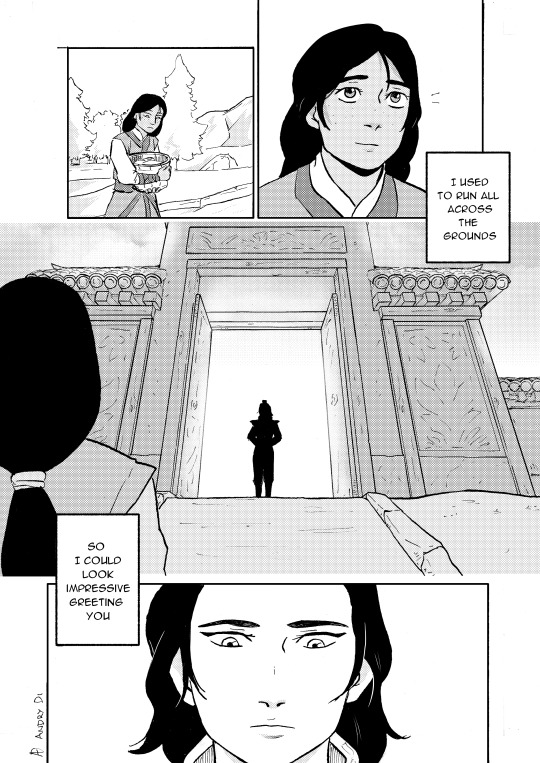
#the rise of kyoshi#the shadow of kyoshi#the shadow of kyoshi spoilers#spoilers#the rise of kyoshi spoilers#kyoshi#rangi#rangshi#kyoshi novels#kyoshi novels spoilers#comics#ad23#I read the novels a couple of weeks ago
2K notes
·
View notes
Text
Something I noticed after reading The Shadow of Kyoshi:
Both Kuruk and Hei-Ran willingly sacrifice their reputation for the greater good—Kuruk to protect Yangchen’s legacy and keep the world and his friends safe, and Hei-Ran to protect her country (among other things).
#kuruk#hei-ran#chronicles of the avatar#the shadow of kyoshi#the rise of kyoshi#kyoshi#the shadow of kyoshi spoilers
47 notes
·
View notes
Text
⚠️MAJOR SHADOW OF KYOSHI SPOILERS BELOW⚠️
-
-
-
Made this comic very quickly at work today


Based on this text I sent my friend

#the shadow of Kyoshi spoilers#shadow of Kyoshi spoilers#rise of Kyoshi spoilers#the rise of Kyoshi spoilers#the rise of kyoshi#the shadow of kyoshi#Kyoshi#avatar kyoshi#rangi sei'naka#Rangshi#Yun
28 notes
·
View notes
Text
Kyoshi, being electrocuted to death:

Rangi, at the people electrocuting Kyoshi: *sobbing and pleading for them to stop*
Kyoshi, at the people electrocuting her:

#kyoshi#rise of kyoshi#shadow of kyoshi#rangi#rangshi#rise of kyoshi spoilers#rangi sei'naka#rangi seinaka#gotta get that daily kyoshi propaganda in for the day 8U#this is one of my fav scenes of the avatar state (might only be second to the red lotus!Korra fight one)
135 notes
·
View notes
Text
Spoilers for the Avatar Kyoshi Novels
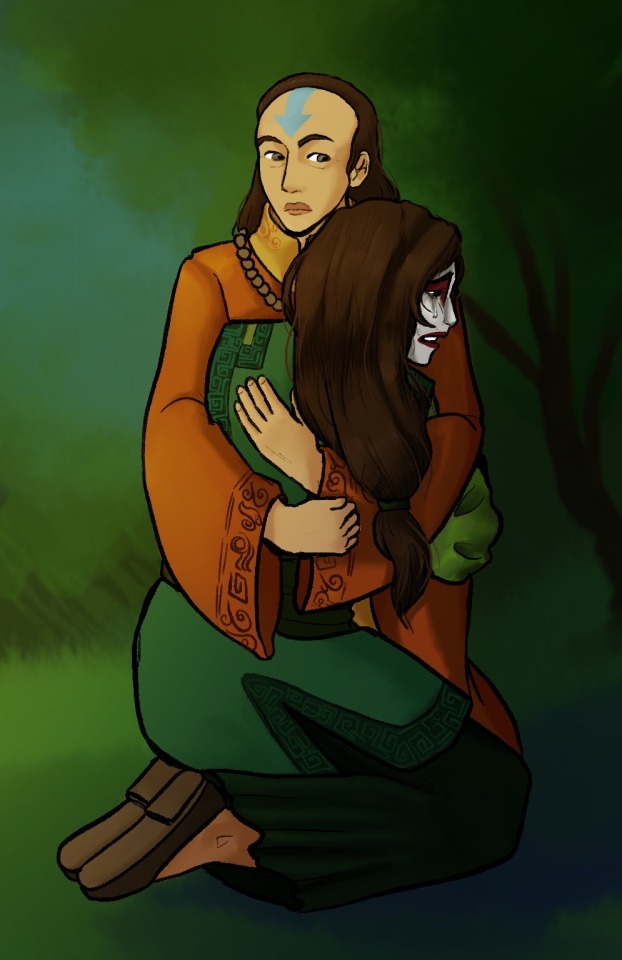
The confusing struggle that comes when your past life reminds you of the mother that left you, and the adopted father figure that died for you. Poor Kyoshi.
#atla spoilers#atla fanart#art#atla#avatar kyoshi#digital art#avatar yangchen#rise of kyoshi#shadow of kyoshi
156 notes
·
View notes
Text
Yun being able to bend the tiniest bit of earth, down to the element being ground up into paint, VS Kyoshi literally raising the ocean floor and bending huge pieces of earth, in this essay I wILL-
#I’m insane#woke up in a cold sweat#at 3am#thinking about this#atla#avatar kyoshi#avatar the last airbender#the rise of kyoshi#avatar yun#yun#the shadow of kyoshi#shadow of kyoshi#kyoshi#kyoshi novels#kyoshi books#shadow of kyoshi spoilers#rise of kyoshi spoilers#earthbending
214 notes
·
View notes
Text


important Firelord Zoryu addition to this post.... he was just being quirky guys...
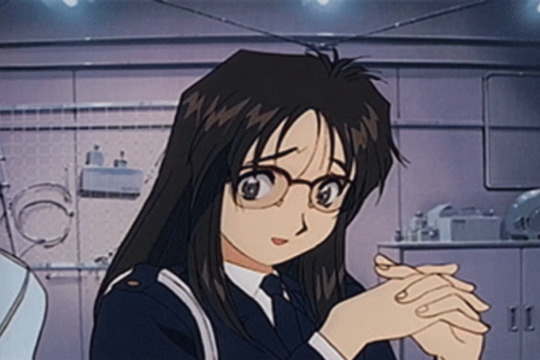

#shadow of Kyoshi spoilers#zoryu#atla#no but literally they weren't even normal in like. 390 BG which MAKES SENSE. but#anyway love u Zoryu. you're funny.#allgremlinart#dont ask me to explain this but ... he's kind of like fanon zuko but worse
149 notes
·
View notes
Text
bro every avatar’s mental health is an absolute mess, wdym yangchen had schizophrenia. then kuruk had depression and kyoshi some severe childhood traumas. then there’s roku just standing there. then we have aang also traumatized and then korra too. PLS CAN’T ONE OF THEM BE HAPPY??
#DAWN OF YANGCHEN SPOILERS#though we could argue roku's own death traumatized him afterwards#like he fr got obsessed with the idea that aang had to kill the firelord#avatar the last airbender#avatar the dawn of yangchen#avatar the rise of kyoshi#avatar the shadow of kyoshi#avatar kuruk#avatar kyoshi#avatar yangchen#avatar aang#avatar roku#avatar korra
163 notes
·
View notes
Text
Spoilers for The Rise of Kyoshi and The Shadow of Kyoshi. They are small, but they're there.
I love how in the first book Kyoshis internal monologue is: oh my God I'm going to die. No, no, no! A great sadness has taken me.
And of course my favorite: There is no path so I'll make a path- OMG I JUST BROKE THROUGH SEVERAL STONE WALLS
And in The Shadow of Kyoshi
Everyone: What have we done to unleash such a malevolent spirit on ourselves?!?!
12 notes
·
View notes
Text
The Kyoshi novels really read the room (the world) right when they said that there are different types of avatars depending on what the world needs... and sometimes the world needs an avatar who doesn’t respect the power of the unjust, and who will react accordingly no matter what the socially-established hierarchy is.
Someone who sees the rulers of the world for what they are, and will be intensely aware of the ones who are corrupt and cruel and uncaring. Someone who will use the unparalleled power that they have been given to challenge and threaten and, if necessary, kill those who don’t treat right the people they are responsible for.
Literally the last scene of the novels is one of the most deadly assassins in the world being sent after the ruler of a nation just to tell them basically “Kyoshi sent me. She’s watching you. And if you fuck up, it’ll be her coming after you.”
If that isn’t wish fulfillment for the modern era, I don’t know what is.
#kyoshi#the rise of kyoshi#the shadow of kyoshi#avatar#spoilers#but I tried to keep it vague#my posts
106 notes
·
View notes
Text
finished the dawn of yangchen and. many thoughts.
i really liked it. i liked that we got to perspectives, since the kyoshi novels were mostly kyoshi’s point of view. i love kyoshi, but i wish we’d had rangi’s pov too, so i’m glad we got yangchen and kavik. i don’t think the story could be told without both povs.
it was also a different perspective on the avatar. most of what we’ve seen is avatars fighting a war. so having something that technically takes place during peacetimes (though i wouldn’t be surprised if there was a war in the next book) was interesting, with battles being with information and spies. could it technically be classified as a cold war? either way. different perspective. especially since yangchen is an air nomad. she holds onto her values, but you can see a contrast with how she does vs how aang does. which is thoughts for another time.
also???? mama is ayunerak. that’s what that ending was right. or am i just reading it wrong.
anyway. yangchen is an icon
#dawn of yangchen#dawn of yangchen spoilers#atla#avatar the last airbender#rise of kyoshi#shadow of kyoshi#rangi sei'naka#avatar kyoshi#avatar yangchen#kavik
39 notes
·
View notes
Text
marinette reconnecting with previous ladybug holders?!? very much avatar: the last airbender vibes and I am eating it up
#personal#marinette dupain cheng#ladybug#reunion spoilers#reunion#ml s5#ml s5 spoilers#miraculous ladybug#honestly atla and specifically korra spoilers too I guess below#I’m currently on the second avatar kyoshi book aka shadow of kyoshi so you know I love the concept of reconnecting with past lives#atla#avatar: the last airbender#avatar the last airbender#we don’t talk about how korra completely killed the vibes tho...my heart#when I tell you that when I found that out? top five heartbreaks I’ve had with media
20 notes
·
View notes
Text
I don’t think Kyoshi really disliked Kuruk, exactly--after finding out the truth about him and letting go of her resentment, she actually appears to like him a lot.
I think she was using him as a target to vent her pain and trauma on about all the hardships she’s had to endure since she was a child. “You belong with me in the gutter” is pretty telling.
37 notes
·
View notes
Text

My Kyoshi novels arrived and I can't wait to finally read them 🥺
#kyoshi#rise of kyoshi#shadow of kyoshi#i sadly have read spoilers already but it's fine it usually makes reading more exciting for me bc it makes me want to finish it all#in one sitting because i want to know so badly already as to why x spoiler happened and things like that#aly talks
6 notes
·
View notes
Text
Rangi being completely calm and hinged during the noodle scene
#rangi#rangi sei'naka#rangi seinaka#shadow of kyoshi#avatar#rise of kyoshi#shadow of kyoshi spoilers#rangshi#silly video#silly draws#silly animates#(more like silly traced but it's for the meme leave me be u_u i busted my hand for this)#i wanted to animate 3 other frames but....... 8U#oh I forgot to edit out 'she screamed' ...no no leave it in it's funnier#oops almost forgot to do the weird wobbly camera work kdslfja;f (or at least attempt to imitate it)#maybe I'll do the other three frames later#should i make a post with the frames too? -3-#wet cat energy rangi is the best rangi <3#the noodle scene and the table scene are the best cases of that (the fact I haven't see a lick of fanart for the table scene tho is a CRIME#'why don't you make it silly' ONE MIRACLE AT A TIME GUYS!#my ass is lucky i got this thing finished TT0TT
63 notes
·
View notes
Text
The Cycle Repeats: Part IV
One of the key themes of the ATLA franchise is the concept of the Avatar; master of all 4 elements, the fusion of humanity and Raava, the spirit of light and order, whose sole duty is to bring balance to the world, and be the bridge between both the physical and spiritual realms. Along with this comes the idea of reincarnation, which is the premise of the Avatar Cycle, the idea that the Avatar reincarnates in a cyclic order in any of the four nations (fire, air, water, earth). Another concept related to the Avatar Cycle (although originating from the fandom) is the idea of the Avatar fixing the mistakes of their past life, which is often indicated in differences in both habitual circumstances and personalities between both predecessor and successor, and therefore differences in morality.
But what if I were to tell you that the saying "history repeats itself" is also true among Avatar incarnations? Not exactly going the same way, but rather parallels between the lives, personalities, and accomplishments (and failures) of past lives?
In this series of metas, I will be going over parallels (or in some cases, foils) between certain pairs of Avatars that lived decades, or even centuries apart, and yet could not have ever been more similar.
An Unlikely Analogy II: Avatars Kyoshi and Korra (+ Yun)
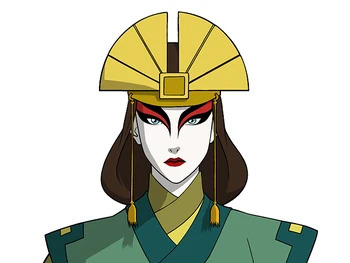
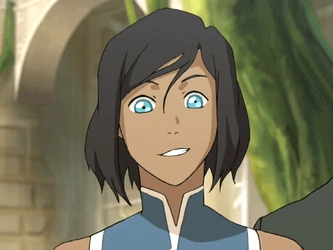
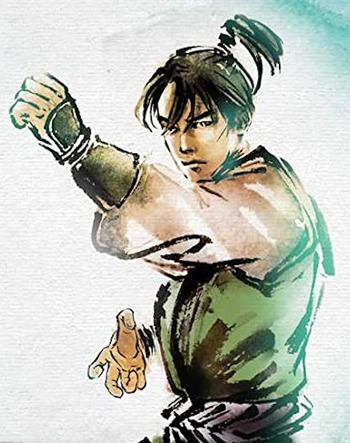
"Kyoshi was the Earth Kingdom-born Avatar immediately succeeding Avatar Kuruk of the Northern Water Tribe, and preceding Avatar Roku of the Fire Nation. She died at the age of 230, making her the oldest confirmed human, and was also an exceptionally tall woman, towering over most people. Kyoshi was born to two criminals: Jesa, a renegade Air Nomad nun, and Hark, a thief from an impoverished family of Earth Kingdom actors. She inherited her later signature outfit from her parents, adopting her mother's golden headdress and metal war fans and her father's daofei face paint."
"Korra is the current incarnation of the Avatar and immediate successor of Avatar Aang. Born and raised in the Southern Water Tribe, where she mastered waterbending, earthbending, and firebending, she later relocated to Republic City to attain a similar proficiency with airbending under the tutelage and guidance of Tenzin, as well as to help her overcome her aversion to the spiritual aspects of the bending arts. With the assistance of Aang's spirit, Korra gained the ability to energybend and, after connecting with her past lives, she gained the capacity to enter the Avatar State at will, marking her transition into a fully realized Avatar."
"Yun was the friend of Kyoshi and Rangi and the earthbending pupil of Jianzhu. Talented, charismatic, and handsome, he was misidentified as the new Earth Avatar after a long and difficult search. Following the revelation of Kyoshi's identity as the true Avatar, Yun was betrayed by Jianzhu, who felt the boy's usefulness had been exhausted and allowed Father Glowworm to carry him off in the mountains."
I once again posted the first paragraph of their respective pages, and you might be wondering why I've included Yun. The reason is that, although Yun was misidentified as the Avatar, he still has various parallels with both Korra and Kyoshi during his "journey". On the surface, you might say that they are more balanced; they have both similarities and differences between their morals and personalities. You would be right on this account, so let's dive in!
(WARNING: There will be possible spoilers for both The Rise of Kyoshi and The Shadow of Kyoshi. If you do not wish to be spoiled, I suggest not reading any further and scrolling past this post until you have finished reading both novels. You have been warned.)
First, we have to take account the parallels between Kyoshi and Korra. The problems that arose during their times were rather complex; Kyoshi's predecessor Kuruk left behind a destabilised Earth Kingdom overrun by criminals, while Aang, although he brought the world to peace, had left behind both the Equalists and the Red Lotus for Korra to deal with. In addition, according to the first chapter of both The Rise of Kyoshi and the premier of The Legend of Korra, Welcome to Republic City (Book 1: Episode 1), both Jianzhu and the White Lotus had been looking for the Avatar for years. Jianzhu and Kelsang had been trying to locate the Avatar across the Earth Kingdom, while the White Lotus had searched both the North and South Poles. This is also where Yun comes in.
Initially in Book 1, Korra had similar opinions on violence and control as Kyoshi did (only justice will bring peace), and even befriended a polar bear-dog (Naga) at the age of four. (Polar bear-dogs are considered to be dangerous animals in the Avatarverse.) However, there is a difference between how each Avatar reacted to her status. Kyoshi denied it and ran away (which I have mentioned parallels with Aang), whereas Korra was the one who discovered her status and accepted her fate as the Avatar, saying that there was nothing more she wanted to be, which is a parallel to Yun's false identity as the Avatar. Ironically, Kyoshi (like Aang) ran away from her duties when the world needed the Avatar, while Korra accepted her duties during a time when the world had long since advanced beyond the need of an Avatar.
Both Kyoshi and Korra are also of mixed ancestry; Kyoshi's father was from the Earth Kingdom, while her mother was a rogue Air Nomad. Korra's father, like Kyoshi's mother, was a rogue immigrant to another nation, being a member of the NWT royal family, while her mother was from the SWT, which gained independence from the North after the Water Tribe Civil War. Kyoshi and Korra are also the only two Avatars to master the elements in their home nation, rather than travelling abroad (Kyoshi learned earth-, fire-, and waterbending with the FOC in the Earth Kingdom and mastered air- and waterbending in the Fire Nation, while Korra mastered water-, earth, and fire-bending in the White Lotus Compound in the South Pole and learned airbending at Air Temple Island in Republic City). However, Kyoshi was constantly on the run, living on the streets as a child, whereas Korra lived in comfort, but isolation.
However, their bending affinity are opposites. Kyoshi struggled to earthbend due to her sheer power, to the point that she had trouble bending small amounts of earth, while moving chunks of the seafloor with ease (not how it typically works), and favoring its elemental opposite, air, in combat. Korra, on the other hand, preferred earth- and especially firebending in combat, while struggling to airbend due to its philosophies contradicting with her drive and hot-headedness.
Now, the parallel between Korra and Yun. Korra and Yun's respective upbringings parallel each other; both grew up isolated in compounds, and being taught by the companions of their predecessors, being told that the only thing that mattered was their status as the Avatar. As a result, this caused a serious mental stunt for both of them, especially when it was revealed that Yun wasn't the true Avatar. Korra wasn't taught how to properly handle politics, whereas Yun went all-in and hunted Kyoshi down Tai Lung-style. Ironically, this was originally supposed to be a way to protect the Avatar, issued by their predecessors, Aang and Kuruk respectively, which was apparently misinterpreted by their supposed caretakers (The White Lotus and Kuruk's companions respectively).
Finally, the parallels between Kyoshi and Yun. Both are similar in that they both grew up abandoned in the streets; Kyoshi in Yokoya, and Yun in Makapu; at least until they were moved into Jianzhu's mansion in Yokoya. Both were "cared" for by a former companion of Avatar Kuruk (Kelsang and Jianzhu respectively; note that I put quotation marks on "cared for" because Jianzhu pretty much physically and mentally abused Yun), but this is where the similarities end.
Now, there are a handful of scenes in the Kyoshi novels which particularly stood out to me. The parallels between Yun's ability to bend the tiniest speck of dust vs Kyoshi struggling with the finer movements but easily raising the entire sea floor during her fight with Tagaka. The parallels between Kyoshi almost drowning herself to connect with Kuruk for the first time while forgetting she can waterbend vs Yun returning to the physical world only to be denied access to water.
We have to remember that the element of earth plays a central role in Rise; Kyoshi is a born earthbender, the book takes place in the Earth Kingdom, earth is the only element Yun can bend, earthbending is the only advantage Jianzhu has against Kyoshi, most of the FOC (Kyoshi's daofei gang) are earthbenders,etc, while the element of water is a central theme in Shadow (which is ironic, considering the book takes place in the Fire Nation), as is Avatar Kuruk's legacy as the Water Tribe predecessor of Kyoshi. In the original series, Iroh states that water is the element of change. During the whole novel, water represents the ability to move on, the ability to change. In these two scenes, water represents both Kyoshi feeling overwhelmed by her new duties as the Avatar and Yun's desperation to prove that he is the true Avatar.
Also, during the final battle, Kyoshi kills Yun by freezing his heart and lungs. Her ability to waterbend represents her ability to move on from the past and change, whereas his lack of waterbending represents his inability to grow, to move on from the past, to change. Yun even bends the earth similar to water, but it's a mere imitation of the bending art, not the skill itself.
Generally speaking, most people can easily spot the similarities (and in some cases, differences) between Kyoshi and Korra. From bending to upbringing to the conclusions of their respective histories, one can find some details between both Avatars. What they don't see is their biggest connecting link; their similarities with Yun. The False Avatar acts as the foil to enhance both characters, their histories, and their legacy. In the next part, we'll discuss the similarities between the current Avatar Korra and the Water Tribe Avatar before her, Kuruk.
<- Prev I Next ->
#atla#past avatars#kyoshi#korra#yun#avatar yun#<- prev tag is literally MOCKING him#lok#kyoshi novels#the rise of kyoshi#the shadow of kyoshi#the cycle repeats#mone's theory#mone digs deep
29 notes
·
View notes